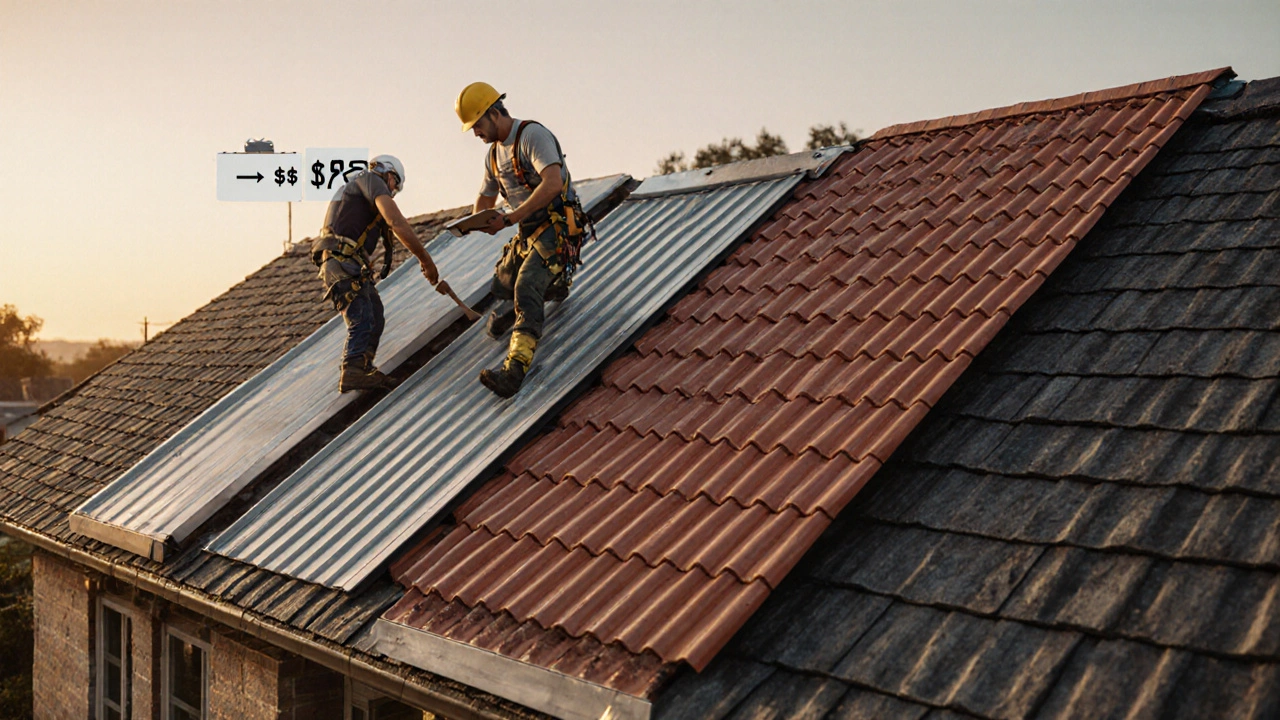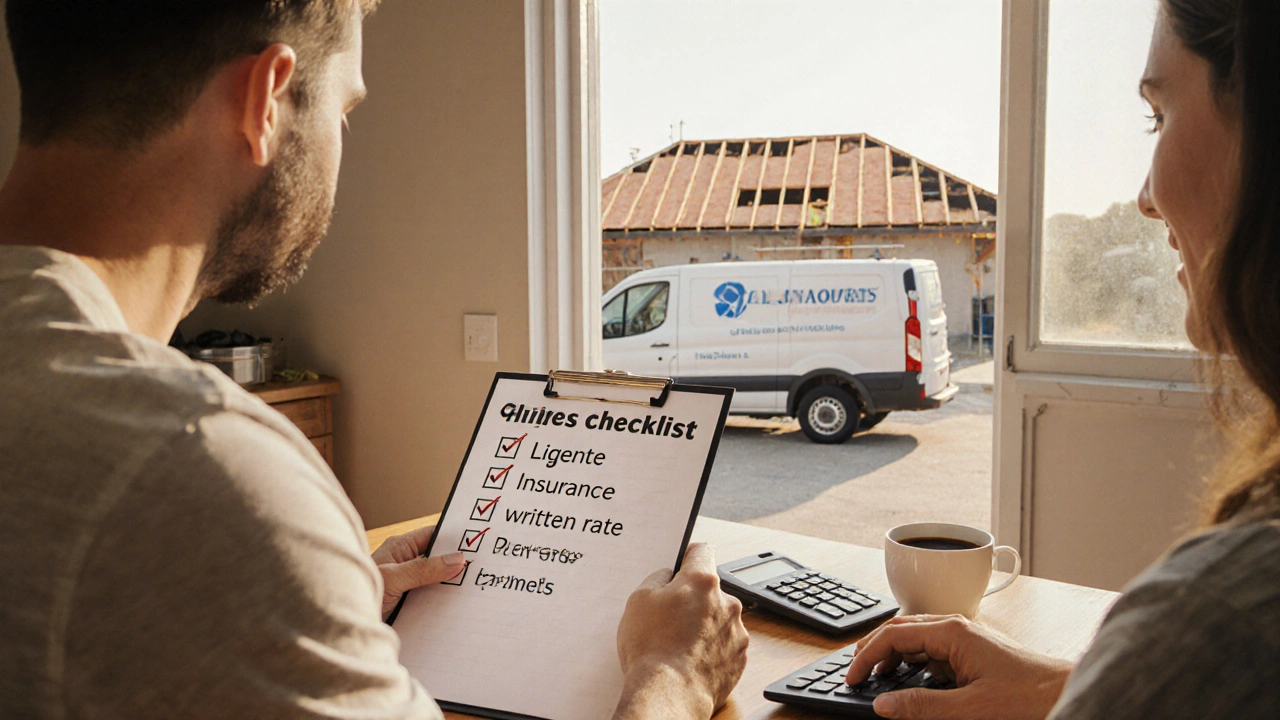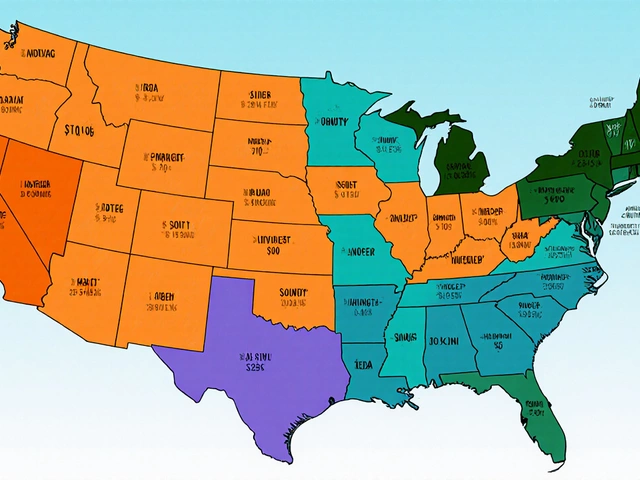Roofing Labor Cost Calculator
Calculate Your Labor Costs
Estimated Labor Costs
Note: These are labor-only estimates. Material costs, permits, and other fees are not included. Always get a written quote.
When you call a Roofing company is a business that specializes in installing, repairing, and maintaining roof systems, the first thing most homeowners wonder is the price tag. In 2025 the answer isn’t a one‑size‑fits‑all number; it depends on the job, the material, and where you live. Below is a straight‑forward guide that breaks down the factors, shows typical hourly ranges, and gives you a cheat‑sheet to keep the conversation focused.
Why Roofing Companies Use Hourly Pricing
Most roofing work is billed either per square foot or per project, but hourly rates still matter for several reasons:
- Small repairs or emergency call‑outs don’t fit neatly into a square‑foot estimate.
- Labor is the biggest cost driver-materials have set prices, labor fluctuates.
- Clients often need a quick ballpark before signing a full contract.
Knowing the hourly component helps you compare quotes beyond the headline total.
Core Factors That Shape the Hourly Rate
Three big variables decide what you’ll pay per hour:
- Geographic region - Labor markets differ wildly from Miami to Minneapolis.
- Roof type - Installing metal, tile, or slate takes more skill than a basic shingle roof.
- Company size and experience - Large crews with insurance and certifications charge a premium.
Each factor adds a multiplier to a base rate that usually falls between $75 and $150 per hour in the United States.
Typical National Hourly Ranges (2025)
Below is a quick snapshot of what most roofing firms charge as a base labor rate:
| Region | Low End | Average | High End |
|---|---|---|---|
| West Coast (CA, WA, OR) | $95 | $120 | $150 |
| Southwest (AZ, NM, TX) | $80 | $105 | $130 |
| Midwest (IL, OH, MN) | $70 | $90 | $115 |
| Northeast (NY, PA, MA) | $85 | $110 | $140 |
| South Atlantic (FL, GA, SC) | $75 | $100 | $125 |
These numbers are averages; actual quotes can be higher if the job demands specialized skills.
How Roof Type Affects Labor Costs
Not all roofs are created equal. Here’s a quick rundown of common roof types and the labor premium they usually carry:
- Shingle roof is the most common residential material; labor stays close to the base rate.
- Metal roof requires precise cutting and fastening, typically adding $10‑$20 per hour.
- Tile roof is heavy and fragile; contractors often charge $15‑$30 extra per hour.
- Slate roof demands experienced masons; premium can reach $40 per hour above base.
If your project involves multiple materials, ask the contractor to separate labor lines for each.

Estimating the Total Cost From Hourly Rates
To turn an hourly figure into a realistic budget, follow these steps:
- Ask the roofer for a detailed time estimate (e.g., 12 hours for a 1,500‑sq‑ft shingle job).
- Multiply the quoted hours by the hourly rate they disclosed.
- Add material costs, permit fees, and any disposal charges.
- Include a 10‑15% contingency for unexpected issues (storm damage, hidden rot).
Example: A Midwest contractor quotes $90/hr for a 12‑hour shingle repair. Labor = $1,080. Materials (shingles, nails) $300. Permit $50. Contingency $150. Total ≈ $1,580.
Hidden Fees You Should Watch Out For
Even with a clear hourly rate, some companies tack on extra costs that can surprise you:
- Travel surcharge - If the job site is more than 30 miles from the depot, expect $0.50‑$1 per mile.
- After‑hours premium - Night or weekend calls often add 20% to the standard rate.
- Equipment rental - Scaffolding or lifts may be billed hourly separate from labor.
- Waste disposal - Some firms charge a flat $100‑$250 for debris removal.
Ask for a written breakdown before signing the contract.
Negotiating the Best Hourly Rate
Here are three practical ways to get a fair price without sacrificing quality:
- Get at least three quotes and use the lowest one as leverage.
- Bundle small jobs (e.g., gutter repair + flashing) to negotiate a lower combined hourly rate.
- Ask if the contractor offers a discounted rate for cash payment or for scheduling during off‑peak seasons (late fall).
Remember, the cheapest quote isn’t always the safest. Verify the company’s insurance, licensing, and references.

Quick Checklist Before Hiring
- Confirm the base roofing hourly rate in writing.
- Ask for a detailed breakdown of labor vs. material costs.
- Check that the roofer holds a valid state contractor’s license.
- Verify general liability and workers’ compensation insurance.
- Request references from at least three recent residential projects.
- Make sure all permits and local building code compliance are covered.
Cross‑checking these items will protect you from surprise invoices.
Frequently Asked Questions
Frequently Asked Questions
What is the typical hourly rate for a roofing contractor in 2025?
Across the U.S., the base labor rate usually falls between $75 and $150 per hour, with regional averages shown in the table above.
Do roofing companies charge extra for emergency repairs?
Yes. Emergency call‑outs often carry a premium of $30‑$50 on top of the standard hourly rate, plus possible after‑hours fees.
How does roof material affect the hourly cost?
Shingle work stays close to the base rate. Metal adds about $10‑$20 per hour, tile $15‑$30, and slate can add $40 or more per hour.
Can I negotiate a lower hourly rate?
Absolutely. Get multiple quotes, bundle small jobs, or schedule during off‑season periods to secure discounts.
What hidden fees should I look out for?
Travel surcharges, after‑hours premiums, equipment rentals, and waste disposal fees are common extras. Ask for a line‑item quote.
Understanding how roofing companies price their labor puts you in the driver’s seat. Use the numbers, the checklist, and the FAQ to ask smarter questions, compare quotes confidently, and land a fair deal for your roof project.

Write a comment